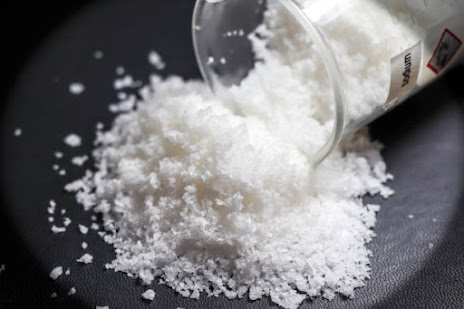Sodium Caseinate Market Size to Signify Healthy Growth with Development Strategies by 2030
Sodium caseinate is a type of protein derived from milk. It is a water-soluble protein that is made by treating casein, a milk protein, with sodium hydroxide to create a sodium salt form. Sodium caseinate is commonly used as an ingredient in food and beverage products due to its functional properties, such as its ability to emulsify, stabilize, and improve texture. It is often used as an ingredient in processed foods, dairy products, baked goods, powdered beverages, and nutritional supplements.
Sodium caseinate is a source of high-quality protein, as it contains all the essential amino acids that the body needs for growth and maintenance. It is also relatively low in lactose, making it suitable for individuals who are lactose intolerant.
As a food ingredient, sodium caseinate can serve various functions, including acting as an emulsifier to help mix oil and water-based ingredients, stabilizing foams and creams, improving texture and mouthfeel, and increasing protein content in food products. It can also be used in some non-food applications, such as in the manufacturing of adhesives, coatings, and pharmaceuticals.
The sodium caseinate market has experienced steady growth in recent years due to increasing demand for protein-rich food and beverage products, as well as the functional properties of sodium caseinate that make it suitable for various applications in the food and non-food industries. The market is influenced by factors such as changing consumer preferences, advancements in food processing technologies, and evolving dietary patterns.
One of the key drivers of the sodium caseinate market is the growing demand for protein-enhanced products, as consumers are increasingly seeking protein-rich foods and beverages for their health benefits, including muscle building, weight management, and overall wellness. Sodium caseinate, being a high-quality protein with good solubility and functional properties, is used in a wide range of food and beverage products, including dairy products, nutritional supplements, sports nutrition products, baked goods, and confectionery items, to enhance their protein content and improve their nutritional profile.
Another factor driving the sodium caseinate market is the increasing use of sodium caseinate as a functional ingredient in food processing. Sodium caseinate acts as an emulsifier, stabilizer, and texture enhancer, which makes it suitable for a variety of applications in food processing, such as in the production of processed cheeses, sauces, dressings, and desserts. Its ability to improve the stability and texture of food products, as well as extend their shelf life, has led to its widespread use in the food industry.
In addition to the food industry, sodium caseinate also finds applications in non-food industries, such as in pharmaceuticals, adhesives, coatings, and other industrial applications. The demand for sodium caseinate in non-food applications is driven by its functional properties, such as its ability to improve viscosity, stability, and texture in various industrial processes.
Key players operating in the global sodium caseinate market include AMCO Proteins, Seebio Biotech (Shanghai) Co., Ltd., Lactoprot Deutschland GmbH, TATUA Co-Operative Dairy Co., Ltd, Ornua Co-operative Limited, Charotar Casein Company, Erie Foods International, Inc., Clover Fonterra Ingredients Proprietary Limited., FrieslandCampina DMV, and Farbest Brands.
Sodium caseinate is used in a wide range of applications in the food and non-food industries. Some of the common applications of sodium caseinate include:
Food and Beverage Industry: Sodium caseinate is widely used as a functional ingredient in the food and beverage industry. It is used as an emulsifier, stabilizer, and texture enhancer in a variety of food products, including dairy products such as processed cheeses, creamers, and ice creams, as well as in sauces, dressings, baked goods, and confectionery items. Sodium caseinate can improve the stability, texture, and mouthfeel of food products, as well as extend their shelf life.
Nutritional Supplements: Sodium caseinate is commonly used as a source of high-quality protein in nutritional supplements, including protein powders, bars, and shakes. It provides essential amino acids and can help support muscle building, weight management, and overall wellness in dietary supplements.
Sports Nutrition: Sodium caseinate is used in sports nutrition products, such as protein bars, shakes, and ready-to-drink beverages, to provide a source of protein for athletes and active individuals. It can aid in muscle recovery, performance, and endurance.
Non-Food Applications: Sodium caseinate also finds applications in non-food industries, including pharmaceuticals, adhesives, coatings, and other industrial applications. In pharmaceuticals, it can be used as an excipient or binder in tablet formulations. In industrial applications, sodium caseinate is used for its functional properties, such as improving viscosity, stability, and texture in products like adhesives and coatings.
Animal Feed: Sodium caseinate can also be used as a source of protein in animal feed, particularly for livestock and poultry. It can provide essential amino acids and help meet the nutritional requirements of animals.
The demand for sodium caseinate in the market is influenced by various factors, including changing consumer preferences, increasing awareness about health and wellness, and growing applications in the food and non-food industries.
Increasing Demand for Protein-Rich Foods: With consumers seeking healthier food options, there has been a growing demand for protein-rich foods and beverages. Sodium caseinate, being a high-quality protein source, is used in a wide range of food products to enhance their protein content and improve their nutritional profile. This demand is particularly driven by the growing awareness about the importance of protein in maintaining overall health and well-being, including muscle building, weight management, and satiety.
Functional Properties for Food Applications: Sodium caseinate's functional properties, such as its emulsifying, stabilizing, and texture-enhancing capabilities, make it suitable for various food applications. It is used in processed cheeses, sauces, dressings, baked goods, and confectionery items, among others, to improve product stability, texture, and shelf life. The food industry's demand for sodium caseinate is driven by the need to improve the sensory characteristics and overall quality of food products.
Growing Applications in Non-Food Industries: Sodium caseinate also finds applications in non-food industries, including pharmaceuticals, adhesives, coatings, and other industrial applications. In pharmaceuticals, it can be used as an excipient or binder in tablet formulations. In industrial applications, it is used for its functional properties, such as its ability to improve viscosity, stability, and texture in products like adhesives and coatings. The demand for sodium caseinate in non-food industries is driven by its functional versatility and its ability to provide specific properties required in various industrial processes.
The sodium caseinate market offers several benefits to various stakeholders, including producers, manufacturers, consumers, and the overall industry. Some of the key benefits of the sodium caseinate market include:
Versatility: Sodium caseinate is a versatile ingredient that can be used in a wide range of food and non-food applications. It can function as an emulsifier, stabilizer, and texture enhancer in food products, as well as provide high-quality protein in nutritional supplements. It also finds applications in non-food industries, such as pharmaceuticals, adhesives, coatings, and other industrial processes, due to its functional properties. This versatility makes sodium caseinate a valuable ingredient for various industries, providing flexibility and innovation in product development.
Nutritional Benefits: Sodium caseinate is a good source of high-quality protein, containing essential amino acids that are important for human nutrition. It can help support muscle building, weight management, and overall wellness in dietary supplements and food products. As consumers increasingly seek healthier food options, the nutritional benefits of sodium caseinate can be leveraged to meet their demands for protein-rich foods and beverages, contributing to the growth of the sodium caseinate market.
Improved Product Characteristics: Sodium caseinate can improve the sensory characteristics and overall quality of food products. It can enhance product stability, texture, and shelf life, making it ideal for use in a wide range of food applications, such as processed cheeses, sauces, dressings, baked goods, and confectionery items. The emulsifying and stabilizing properties of sodium caseinate can also help in the formulation of various food and beverage products, providing desirable functional attributes to finished products.
Market Demand and Growth Opportunities: The demand for sodium caseinate has been steadily increasing due to changing consumer preferences, growing awareness about health and wellness, and increasing applications in the food and non-food industries. This presents growth opportunities for producers and manufacturers in the sodium caseinate market. As the demand for protein-rich foods and functional ingredients continues to grow, sodium caseinate can be leveraged to meet these market demands and capture market share.
Industrial Applications: Sodium caseinate finds applications in non-food industries, including pharmaceuticals, adhesives, coatings, and other industrial processes, due to its functional properties. It can be used as an excipient or binder in pharmaceutical formulations and can improve viscosity, stability, and texture in industrial products. This provides opportunities for diversification and expansion of the sodium caseinate market beyond the food industry.
Sustainability: Sodium caseinate is derived from milk protein, which is a renewable and sustainable source. This can be appealing to environmentally-conscious consumers and companies that are seeking sustainable ingredients for their products. Additionally, sodium caseinate can help reduce food waste by extending the shelf life of food products and improving their stability, contributing to sustainability efforts in the food industry.
In summary, the sodium caseinate market offers several benefits, including versatility, nutritional benefits, improved product characteristics, market demand and growth opportunities, industrial applications, and sustainability. These factors contribute to the overall growth and attractiveness of the sodium caseinate market for various stakeholders involved in its production, manufacturing, and consumption.



.png)
Comments
Post a Comment